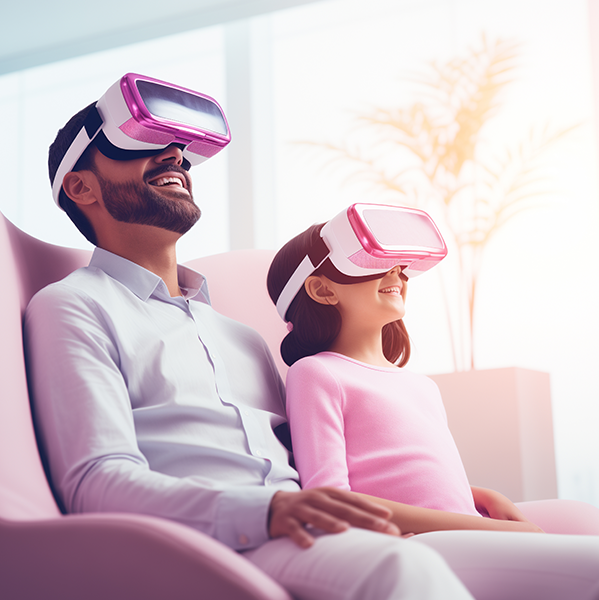
How Virtual Reality is Shaping the Future of Travel
Introduction
Traveling has always been a means of exploration, adventure, and learning. However, with advancements in technology, the way we experience travel is undergoing a transformation. Virtual Reality (VR) is at the forefront of this revolution, offering new ways to explore the world without leaving the comfort of our homes. In this blog post, we'll explore how VR is shaping the future of travel, making it more accessible, immersive, and enriching.
1. Virtual Tours and Destination Previews
One of the most exciting applications of VR in travel is the ability to take virtual tours of destinations before making any travel commitments. Potential travelers can explore hotels, attractions, and even entire cities through immersive VR experiences. This allows them to make informed decisions about where to go and what to do, enhancing their travel planning process. Imagine walking through the streets of Paris, touring the Great Wall of China, or visiting the pyramids of Egypt—all in VR.
2. Overcoming Travel Barriers
VR is making travel accessible to those who face physical, financial, or logistical barriers. For individuals with disabilities, VR offers a way to experience places that might otherwise be challenging to visit. Similarly, those with limited budgets can explore distant destinations without the costs associated with traditional travel. VR also provides an option for people who are unable to travel due to time constraints or personal commitments, allowing them to experience the joys of travel from home.
3. Enhancing Cultural Understanding
Travel is a powerful tool for fostering cultural understanding and empathy. VR can enhance this by providing immersive experiences that allow users to engage with different cultures in a meaningful way. Virtual experiences can include interactions with local people, participation in cultural events, and exploration of historical sites. This deeper level of engagement can promote cultural awareness and appreciation, breaking down stereotypes and fostering global connections.
4. Transforming the Travel Industry
The travel industry is leveraging VR to enhance customer experiences and drive engagement. Travel agencies and tour operators are using VR to showcase their offerings, giving potential customers a taste of what to expect. Airlines are incorporating VR into in-flight entertainment, allowing passengers to virtually explore their destinations before arrival. Hotels and resorts are offering virtual tours of their properties, providing a realistic preview of accommodations and amenities.
5. Education and Training
VR is also being used to train travel industry professionals. Flight attendants, tour guides, and hotel staff can undergo VR training to improve their skills and enhance customer service. For example, VR simulations can prepare flight attendants for emergency situations, or help tour guides learn about new destinations. This training ensures that professionals are well-prepared to provide exceptional service, enhancing the overall travel experience for customers.
6. Personalized Travel Experiences
As VR technology advances, it is becoming possible to create highly personalized travel experiences. Travelers can tailor their virtual journeys to match their interests and preferences, exploring destinations in ways that are most meaningful to them. Whether it’s a foodie tour of Italy, a historical exploration of ancient civilizations, or an adventure trek through the Amazon rainforest, VR can provide customized experiences that cater to individual tastes and desires.
7. The Future of Travel
Looking ahead, the future of travel with VR holds exciting possibilities. As VR technology continues to improve, we can expect even more realistic and immersive experiences. Augmented Reality (AR) may also play a role, blending virtual elements with the real world to enhance travel experiences. Imagine wearing AR glasses that provide historical context as you walk through a city, or overlaying navigation and translation features while exploring a foreign country. The combination of VR and AR could create seamless and enriched travel experiences that were once unimaginable.
Conclusion
Virtual Reality is revolutionizing the way we experience travel, making it more accessible, immersive, and customizable. From virtual tours and destination previews to enhancing cultural understanding and transforming the travel industry, VR is opening up new possibilities for exploration and adventure. As technology continues to evolve, the future of travel with VR promises to be an exciting journey, offering endless opportunities to discover the world in innovative ways.